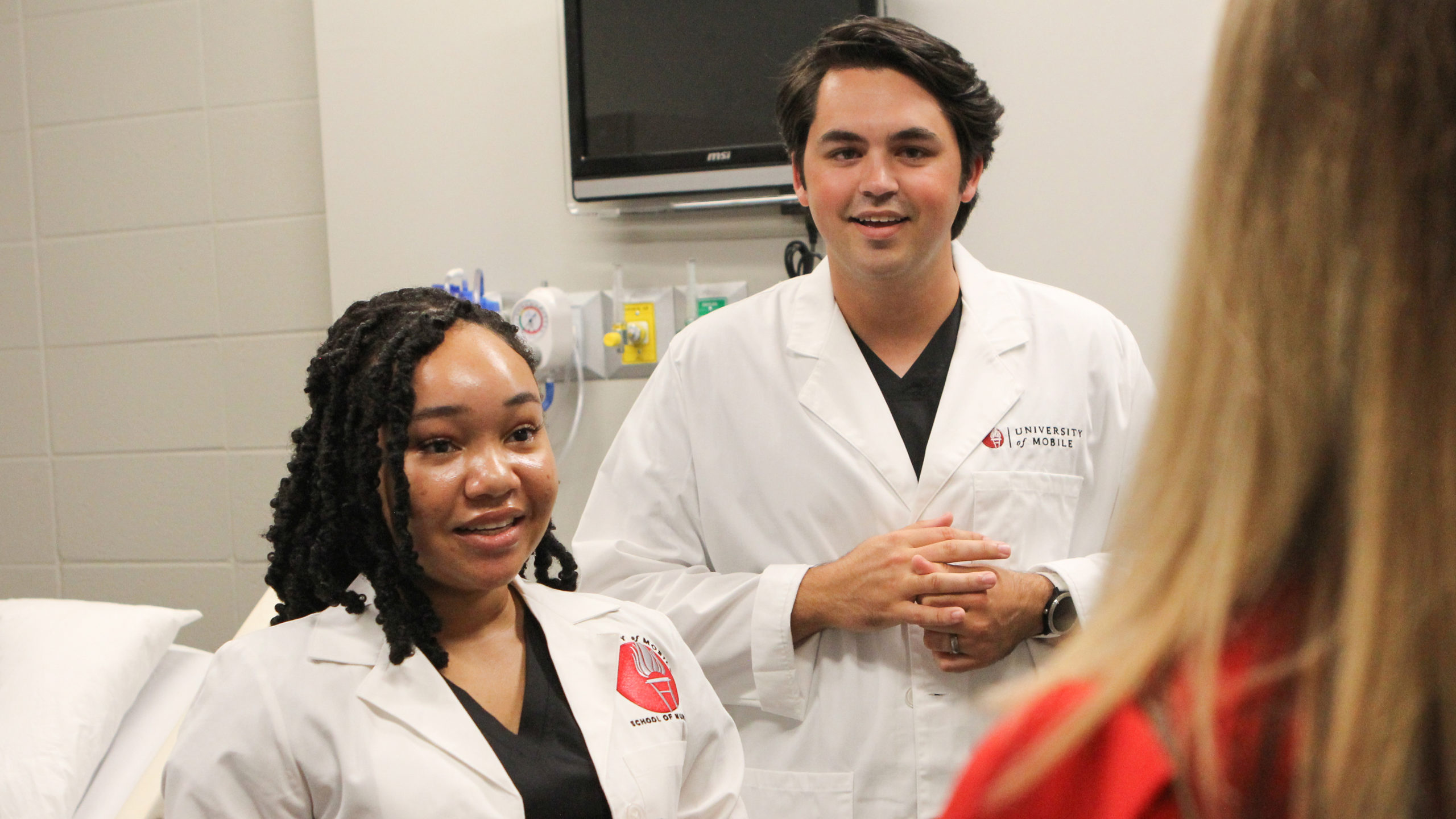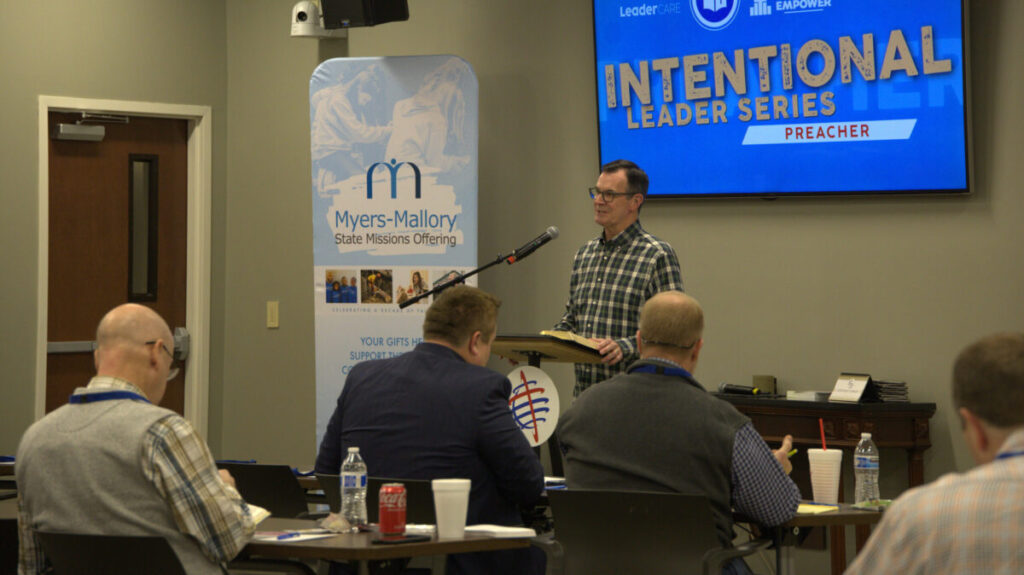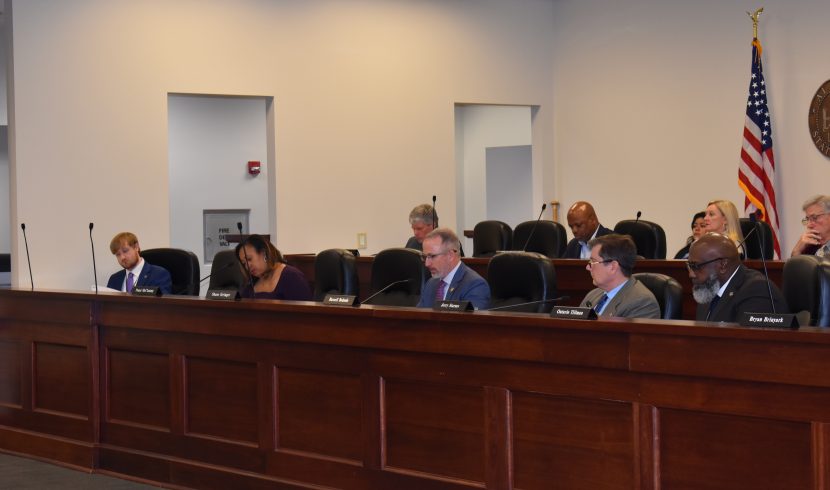The nationwide nursing shortage has health care systems everywhere in a fairly desperate situation. In Alabama low pay and high student debt are stumbling blocks to getting nurses trained and on the floor.
Samford and the University of Mobile are working to help reverse those negative trends, taking advantage of partnerships with other Alabama Baptists when possible.
“The biggest problem in Alabama is keeping nurses,” said Sarah Barnes-Witherspoon, dean of the School of Nursing at the University of Mobile. “Other states are paying two to three times more than Alabama nurses [are paid], so that’s a factor too. Alabama nurses are paid 8% lower than [nurses in] other southeastern states. They’re also working alongside travel nurses who are paid even more for the same job. Therefore, many Alabama nurses leave health care facilities to take travel jobs.
“The issue is relatively easy to resolve,” Barnes-Witherspoon asserted. “Rather than pay a nurse not vested or dedicated to Alabama hospitals, increase nurses’ salaries to keep experienced nurses in Alabama.”
Addressing student debt
Student debt is an issue Samford University in Birmingham seeks to address by offering incentives to nurses who want to get a master’s degree.
“Samford is addressing the issue by preparing nurses to become educators,” said Stephanie Wynn, professor and associate dean for scholarly activities. “How this reflects on the workforce is that nurses need to be taught by other nurses because there is also a shortage of educators. We don’t have enough people to take their places … because nurse educators are leaving and retiring. We don’t have enough nurses to replace them.”
The Samford program has provided loan forgiveness to 187 students so far this year, Wynn noted.
“This is the 20th year of the loan forgiveness program, and we just received another $2.6 million from the [federal] Health Resources and Services Administration,” she added. “Students don’t have to pay anything out of pocket while they are in school. Once they get out of school, after 12 months they are asked to provide four years of education services,” which can be accomplished anywhere.
“We want them to get out and get some experience and then become preceptors or educators,” Wynn said.
Job prospects for nurses are very promising.
According to the Bureau of Labor Statistics’ Employment Projections 2019–2029, registered nursing is listed among the top occupations in terms of job growth through 2029.
The RN workforce is expected to grow from 3 million in 2019 to 3.3 million in 2029, an increase of 221,900 or 7%.
Employment outlook
The Bureau also projects 175,900 openings for RNs each year through 2029 when nurse retirements and workforce exits are factored into the number of nurses needed in the U.S.
Many of those jobs come with generous hiring bonuses and assistance for continuing education.
But in the short-term, “the nursing shortage is at an all-time critical level,” Barnes-Witherspoon noted.
“Various journal articles and other entities have documented the predicted needs in all areas — bedside, academia, school health, public health, etc.”
The American Association of Colleges of Nursing said the national nursing deficit is related to four main things:
- Nursing school enrollment is not keeping pace with projected demand and the increased need for nursing services.
- There is a shortage in the number of nursing school faculty. Given this lack of teachers, thousands interested in joining the nursing workforce cannot do so without degrees.
- The retirement rate for nurses is growing rapidly, as more than half of the RN workforce is older than 50.
- An aging population in the United States continues to drive demand for nursing services.
For those interested in pursuing a nursing degree, Alabama Baptist colleges are providing options, Barnes-Witherspoon said.
For example, the University of Mobile recently launched a new two-year associate degree program.
“One of our vital stakeholders provided funds for 15 scholarships to assist these students financially,” she said.
The UM School of Nursing and enrollment services continually recruit for its nursing programs, Barnes-Witherspoon said.
“We have increased our efforts to recruit more males, first-generation and underserved and diverse populations. In the May 2022 accelerated class, six female and six male students graduated,” she said.
“I’m thankful and inspired by our progress in the School of Nursing. It takes a team, but we are much more than a team — we are family.”







Share with others: